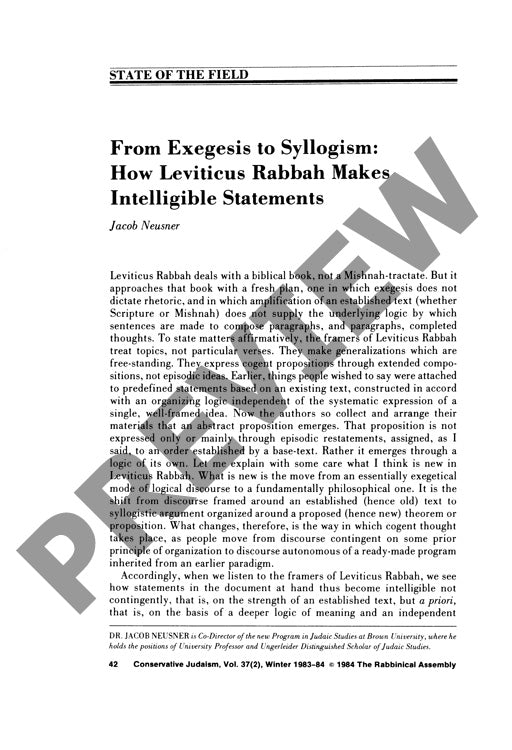From Exegesis to Syllogism How Leviticus
Couldn't load pickup availability
Leviticus Rabbah marks a pivotal shift in Jewish intellectual discourse, transforming traditional biblical exegesis into systematic philosophical argumentation circa 400-450 C.E. Through its thirty-seven parashiyot, the document revolutionizes rabbinic literature by employing conditional syllogisms that link Israel's moral conduct directly to its national destiny. Structural analysis reveals a sophisticated compositional logic far beyond mere compilation, as the framers construct an "as-if" mode of thought where scriptural elements serve as symbolic representations of contemporary realities. The document systematically develops "if X, then Y" arguments, using historical examples to demonstrate how Israel's salvation depends upon its moral condition. This methodological approach recasts Leviticus's priestly themes of sanctification into prophetic concerns with national salvation, arguing that Israel's present subordination stems from its own deeds while maintaining hope for redemption through repentance. The research examines both formal coherence and substantive argumentation across the text's structure, revealing Leviticus Rabbah as the first major syllogistic composition in rabbinic literature after the Mishnah. In this groundbreaking work, Scripture functions not merely as a text for interpretation but as empirical data for discovering social laws governing Israel's existence, establishing a new paradigm in Jewish theological reasoning.

More Information
-
Physical Description
-
Publication Information
Published 1983-1984
ISBN
-
Publication Credits
Jacob Neusner

